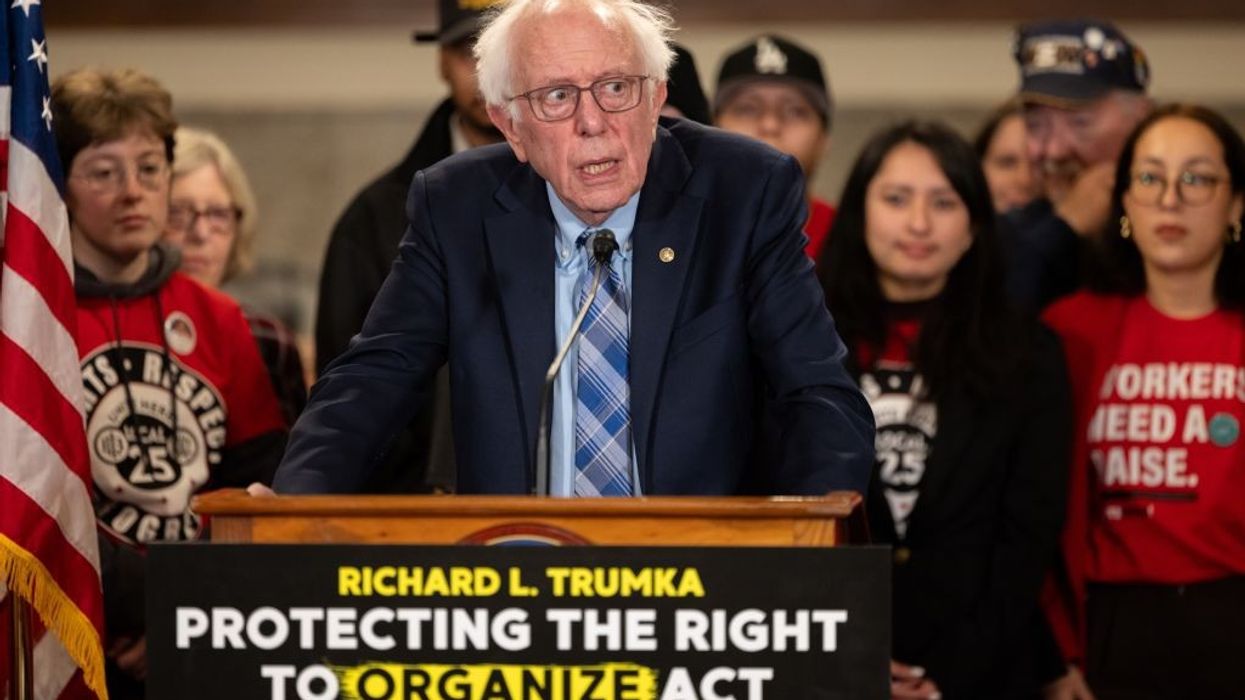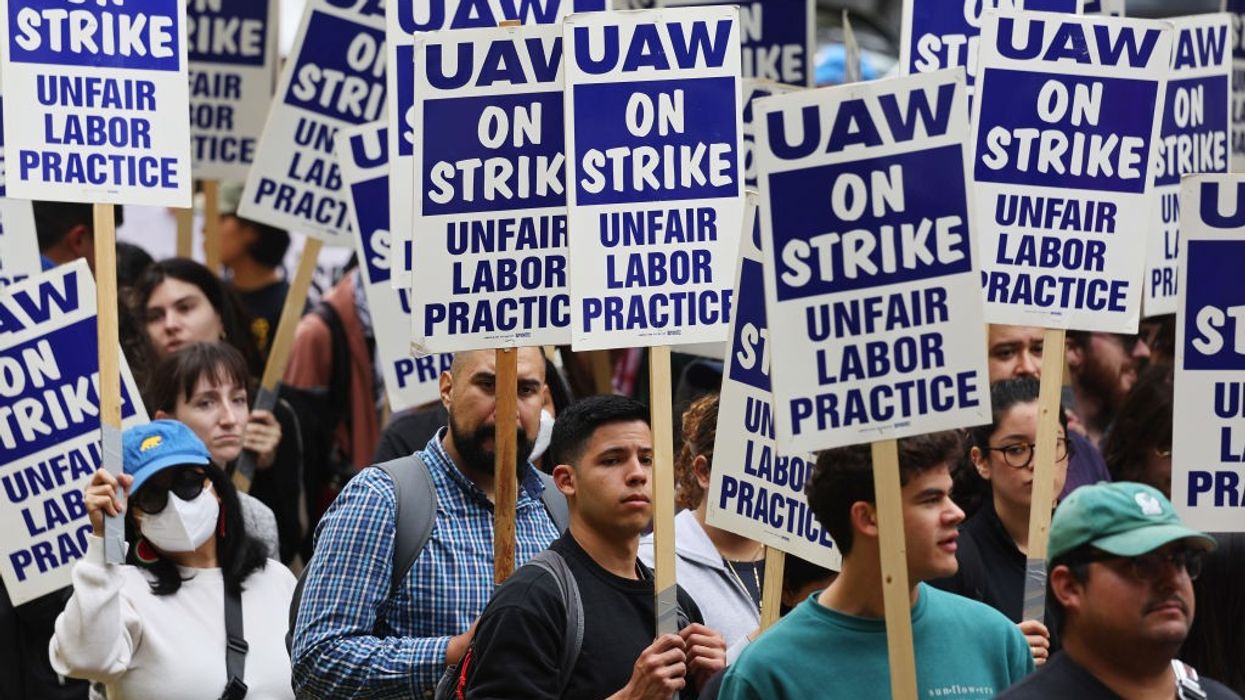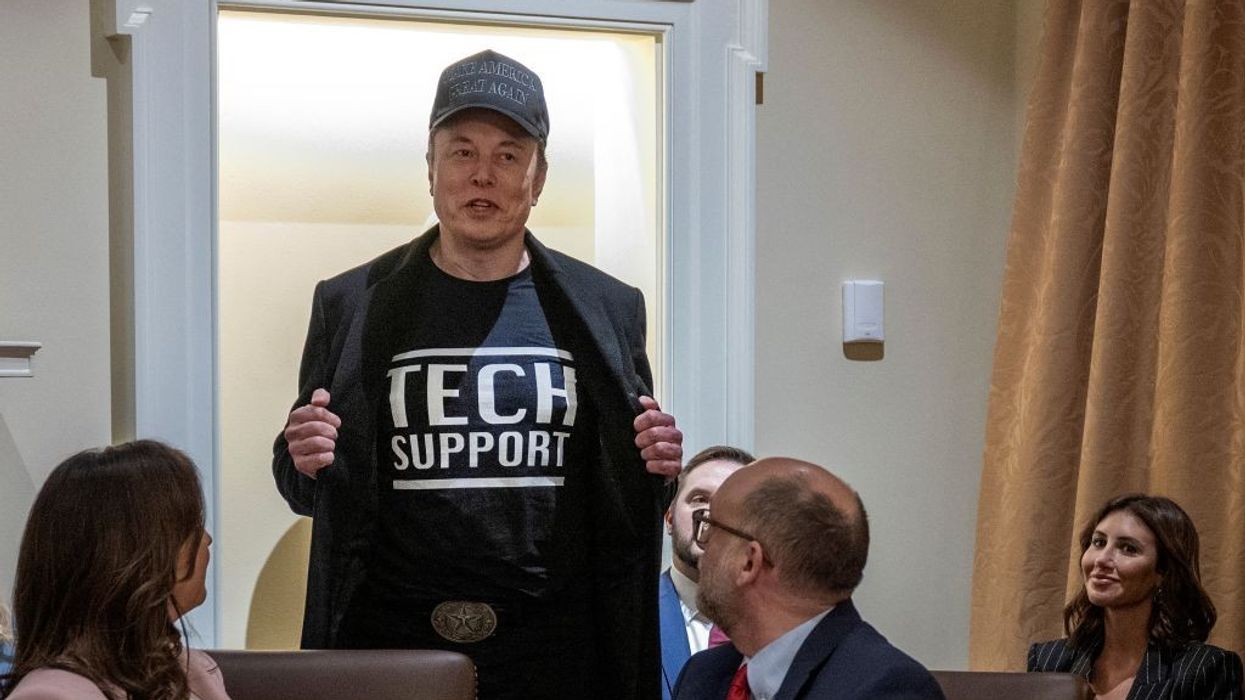Unions Ready for 'Righteous Fight' as Sanders, Dems Reintroduce PRO Act
"We know it won't be easy," said the AFL-CIO president. "There's no fight more righteous than ensuring that every single worker who wants a union has a fair shot to join or form one."
As U.S. Sen. Bernie Sanders and Congressman Bobby Scott reintroduced the Richard L. Trumka Protecting the Right to Organize Act on Wednesday, labor union leaders prepared to fight for the legislation that would strengthen workers' rights.
While Sanders (I-Vt.) and Scott (D-Va.) have long led the battle for the bill on Capitol Hill, most Democrats in Congress—including both minority leaders—also support the PRO Act, which features a wide range of policies intended to hold companies accountable for violating employees' rights and make it easier for workers to form and negotiate with a union.
"Never before in the history of our nation have income and wealth inequality been greater than today. Workers are falling further and further behind. In response, millions of Americans have expressed their desire to join a union," Sanders said in a statement. "However, the billionaire class is fighting with all its might to put down attempts by workers to exercise their constitutional right to unionize."
The PRO Act's reintroduction comes as U.S. President Donald Trump and billionaire Elon Musk work to gut the federal government while congressional Republicans—who have narrow majorities in both chambers—work to cut healthcare and food assistance programs that serve working-class people to fund tax giveaways for the ultrawealthy and corporations.
"Congress has an urgent responsibility to ensure that workers can join a union and negotiate for higher pay, better benefits, and safer workplaces."
Sanders pointed to Trump's decision "to illegally fire National Labor Relations Board Member Gwynne Wilcox and effectively shut down the NLRB," and warned that "without a functioning NLRB, corporate bosses can illegally fire unionizing workers, flagrantly violate labor laws and render free and fair union elections near impossible."
"Supporting the immediate reinstatement of Member Wilcox and the swift passage of the PRO Act would be major steps toward building real worker power," added the senator, who is the ranking member of the Senate Committee on Health, Education, Labor, and Pensions. "The PRO Act is long overdue and I am proud to be introducing this bill."
Scott also framed the bill as a necessity, saying that "unions are essential for building a strong middle class and improving the lives of workers and families. Regrettably, for too long, workers have suffered from anti-union attacks and toothless labor laws that undermined their right to form a union."
"As union approval remains at record highs, Congress has an urgent responsibility to ensure that workers can join a union and negotiate for higher pay, better benefits, and safer workplaces," he argued. "The PRO Act is the most critical step Congress can take to uplift American workers. I urge my House and Senate colleagues on both sides of the aisle to join me in advancing the most significant update for workers' labor organizing rights in over 80 years."
Labor leaders also called on members of Congress across the political spectrum to back the bill—which largely lacks GOP support, but is co-sponsored by Rep. Brian Fitzpatrick (R-Pa.).
"In too many workplaces, in too many industries across the country, big corporations and billionaire CEOs still retaliate against us for organizing," said AFL-CIO president Liz Shuler, who has led the federation since the bill's namesake, Trumka, died in 2021.
"They refuse to negotiate our contracts, force us to sit through hours of anti-union propaganda and engage in illegal union-busting every day," she said of companies and executives. "Now they have an unelected, unaccountable union-buster trying to illegally fire tens of thousands of our fellow workers in federal jobs and an administration rolling back the workplace protections."
Shuler added that "we know it won't be easy, but the labor movement never backs down from a righteous fight. And in today's economy, where our workers' hard-earned paychecks are covering less of what they need while still facing unsafe conditions and a lack of respect on the job, there's no fight more righteous than ensuring that every single worker who wants a union has a fair shot to join or form one."
American Federation of State, County, and Municipal Employees president Lee Saunders reiterated AFSCME's support for the legislation on Wednesday, calling out billionaires and big business for "anti-union extremism" that "is deepening economic inequality, halting progress on health and safety, and harming millions."
"The PRO Act will loosen billionaires' grip on our economic future and make clear that their days of using illegal union busting tactics without consequence are over," he said. "This legislation will level the playing field, giving workers the legal protections they need to organize without fear of retaliation or obstruction. It's about time Congress prioritized workers over billionaires and gave them a fair shot at improving their workplaces."
Other groups that support the PRO Act include the American Federation of Teachers, Communications Workers of America, International Association of Machinists and Aerospace Workers, International Brotherhood of Electrical Workers, National Nurses United, Service Employees International Union, United Autoworkers, and United Steelworkers, among others.
The right to a union means fair wages, benefits, and security—but corporate greed stands in the way," the Laborers' International Union of North America said on social media Wednesday. "The PRO Act fights back! Congress must choose: Stand with working people or bow to Wall Street. The time is now!"


